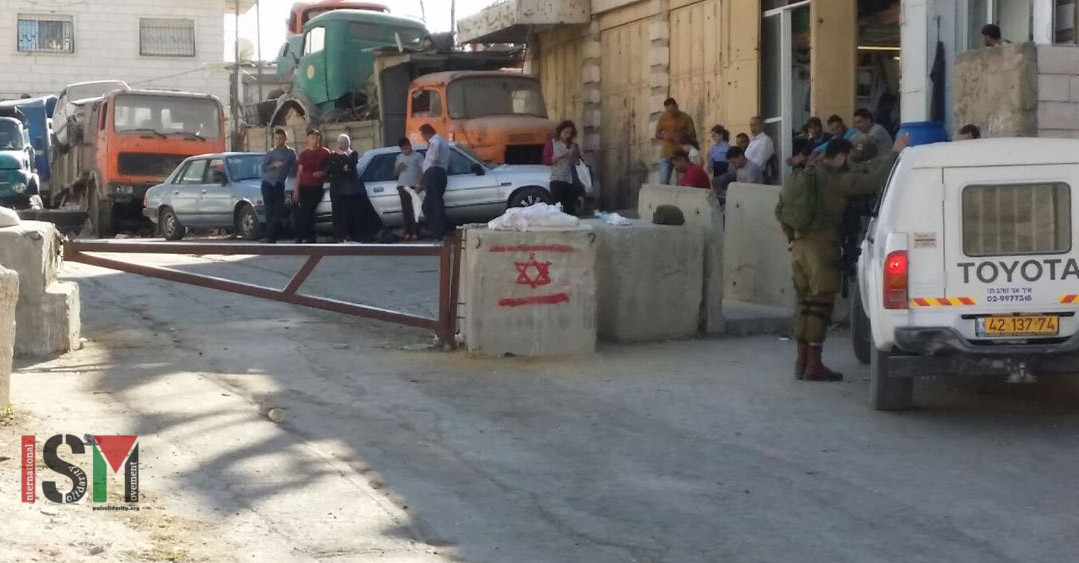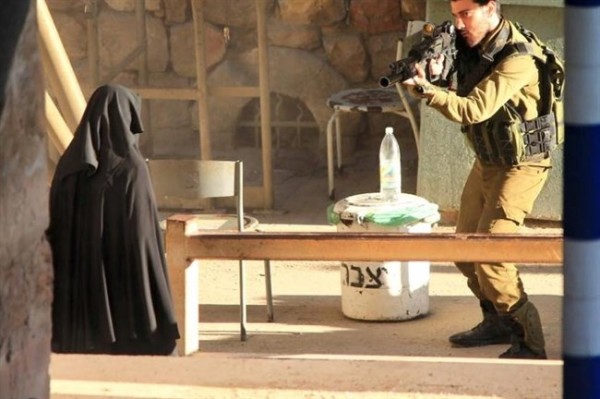Tag: Denial of Entry
-
Nowhere to hide: New illegal observation tower in occupied Hebron
3rd October 2016 | International Solidarity Movement, al-Khalil team | Hebron, occupied Palestine Israeli forces put up a CCTV observation tower in the Ibrahimi mosque area, further increasing not only their all-encompassing surveillance of Palestinians, but also their slow but steady illegal annexation of more and more Palestinian land in occupied al-Khalil (Hebron). At the…
-
The slow creep of ethnic cleansing – closed military zone in Hebron
30th September 2016 | International Solidarity Movement, al-Khalil team | Hebron, occupied Palestine Israeli forces in occupied al-Khalil (Hebron) have further expanded the closed military zone (CMZ), now covering the whole Tel Rumeida neighborhood, while setting up new and enforcing existing checkpoints with increased restrictions. Parts of the Tel Rumeida neighborhood and the tiny strip of Shuhada…
-
Continuing injustice: One year since extrajudicial execution of Hadeel al-Hashlamoun
22nd September 2016 | International Solidarity Movement, al-Khalil team | Hebron, occupied Palestine One year has passed since the extrajudicial execution of the Palestinian student Hadeel al-Hashlamoun by Israeli forces at Shuhada checkpoint in occupied al-Khalil (Hebron). One year without justice for the family of the slain teen – one year of complete lack of…



